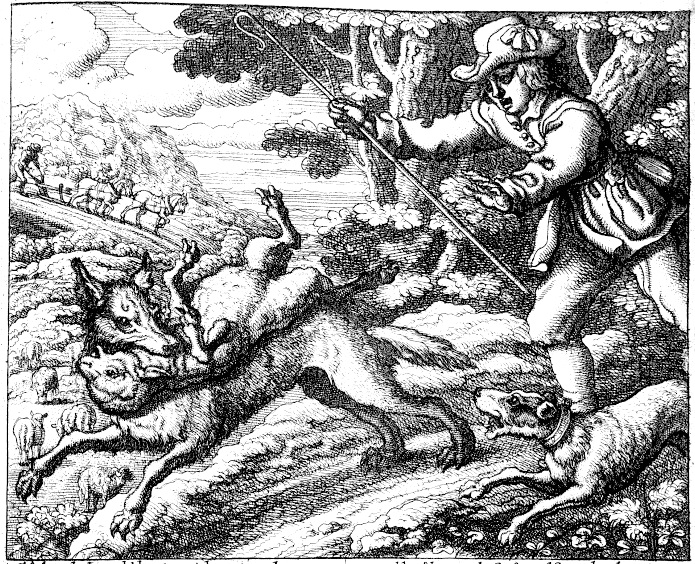Author: Aesop
 |
| via Wikipedia |
The Big Bad Wolf looms large in world folklore. The Wolf is the tyrant of the forest, the embodiment of remorseless greed. Aesop's most famous lupine story is "Crying 'Wolf,'" a timeless cautionary tale. Wolves are no joke, though. They have posed a threat to domesticated livestock for thousands of years. Given that they probably inspired the idea of domestication to begin with, the relationship between wolf and human is inextricably tied to the history of civilization itself.
The Blanche Winder edition bills itself as "Complete and Unabridged," a ridiculous understatement. 48 stories is a lot but the known fables number in the hundreds. Fortunately, in the age of the Internet, everything in the public domain is easily accessible online. If you're interested, look no further. The Winder book, first published in 1965, is a bit dated for other reasons. In "The Boys and the Frogs," a group of boys throw stones at frogs. Ms. Winder expresses hope that "there were no little girls among them." Personally, I see killing frogs for sport more as mean than unladylike but I realize the world has changed a little in 50 years. The Winder book is engaging and certainly accessible to children, if not the most scholarly objective work.
I probably won't re-visit the fables. I did that when I was younger and I sometimes read some of Grimm's, now, so I feel like I'm good as far as that kind of thing goes.
ReplyDeleteI don't think I'd have bothered without the Bigby inspiration but I'm glad I did. As with so much of the world's great children's literature, it's quite different reading as an adult.
DeleteI have not read this version, but have read other compilations of his fables. I agree with you that some of the definitely stand out to me and are remembered from childhood. ;)
ReplyDelete~Jess
I don't know if kids read them in school anymore. They should, cultural literacy and what not.
Delete